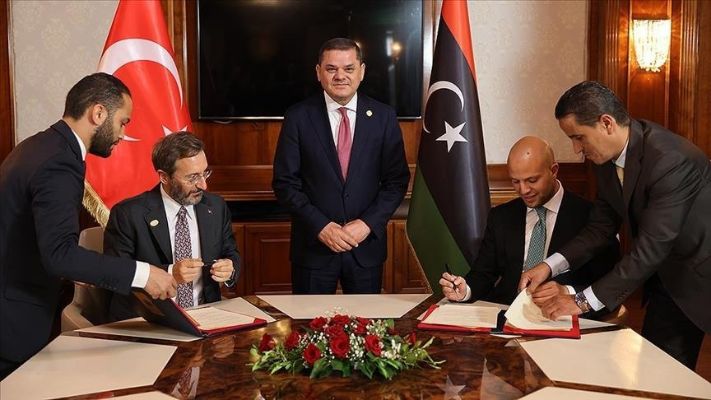
-
Published: 10 January 2023

Tripoli-January 10, 2023
The Third Circuit "Administrative Justice Department" of the Tripoli court of Appeal ruled
The implementation of the memorandums of understanding between the outgoing government led by Abdul Hamid al-dubaiba and the Turkish government signed last October, concerning cooperation in the fields of hydrocarbon energy, was suspended in the urgent phase.
The court explained the reasons for the ruling, most notably that the outgoing government is "a government from which the confidence of the House of Representatives has been withdrawn, and it is considered a caretaker government with limited powers".
She also pointed out that "there is a decision issued by the National Conference No. 44 of 2013, prohibiting any government from signing such agreements unless authorized by the legislative authority, and that the signed memorandum of understanding grants exploration licenses and permits from the unity government to external parties, and this is not its competence, but the competence of the National Oil Corporation by virtue of existing local legislation".
The court pointed out that the outgoing government has the right to appeal this ruling to the Supreme Court, but the appeal does not cancel the ruling, and the last decision remains with the Supreme Court.
The chairman of the Justice Committee of the Libyan House of Representatives, Abdul Hadi al-Saghir, praised the court's ruling, which reflects the fairness of the Libyan judiciary, pointing to the invalidity of the memorandums of understanding, given that the signing government is "expired and has lost legitimacy," as he put it, and cannot sign any agreements binding the Libyan state towards other countries.
Libya cannot incur any obligations because of that agreement, Al-Saghir believes, noting at the same time that the House of Representatives has already tried to send a number of its members to Ankara in order to explain this matter. "In the current state of instability, Libya cannot conclude agreements in this way, the impact of which will extend for future generations and for many years," he said.
The Libyan Political Agreement, signed in Skhirat, Morocco in 2015, prevents the transitional authorities from concluding any international agreements, as guaranteed by the appeal to the court of Appeal, explains legal expert Abdullah Al-Salem.
Although the name by which the agreement was concluded is a "memorandum of understanding", it represented a "complete and wide-ranging agreement", and violated clauses of the Libyan oil law, in addition to its provision on "confidentiality", which contradicts the law of the Audit Bureau.
Al-Salem added that the agreement robbed the exclusive competencies of the Oil Corporation, which is specialized in exploration and exploration agreements, and the authorization to start implementation without concession contracts is contrary to the oil law, and also makes Libya assume obligations indefinitely.
